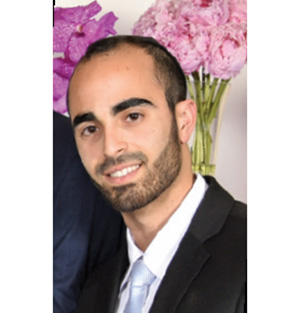
Sukkot is the Yom Tov that is characterized as z’man simchateinu, “a time for joy.” What makes Sukkot different than other holidays that don’t have this unique and exclusive distinction as being the Yom Tov of happiness? This isn’t just an ordinary kind of happiness, but rather, as the Chinuch describes it, this chag is one where we experience “tremendous joy.” What’s the idea? The Chinuch says that the Sukkot season was a time where people brought in the final products from their crops to their house. While this sounds reasonable—after all, who wouldn’t be excited to have fresh crops to enjoy after a long and arduous year of plowing, cultivating, watering, etc.—we have to wonder that this sounds somewhat superficial. OK, so you got some good food and are done the working season and can finally relax and chill, but does that honestly bring a “tremendous joy” that the Chinuch describes? Is that truly enough to have this Yom Tov commemorated proudly as z’man simchateinu? There has to be something deeper going on here.
Think for a moment about certain accomplishments you have in your life. It may be in the area of academia, landing a certain profession, closing many deals, raising children, creating new relationships, etc. Whatever it may be, many of those pursuits were journeys that may have been difficult, physically and emotionally, where your courage and moral to continue going were dampened and threatened. The next thing we know, we made it. We’re here. We got to the place where we wanted to be. We earned that degree, we landed that job, we made that relationship, we healed that person, we achieved scholarship, we raised the children, we became successful. But then we look back and we ask ourselves, how did we get here? Was it really possible to have done it just alone? When we look back and see the yad Hashem in every step of the way, and realize that in no way did we reach our plateau if not for Hashem making it happen, we begin to realize we are in the hands of a Creator who is carefully and lovingly guiding us to reach success. Essentially, when a person reflects on this, he lessens his own participation and understands that it could only have been Hashem Who led him to where he is. To be cradled with this knowledge is what ignites a tremendous happiness inside a person’s soul: he realizes that Hashem was and is right with him, every step of the way, and that he can trust that in the future Hashem will once again lead him to the right place where he needs to be.
As a farmer, there are a million unpredictabilities that are present in the success of reaching the final product. A farmer’s life is basically dependent on everything outside his control. Yes, he can plow, yes he can irrigate, yes he can labor. But there are strong winds, heavy rainstorms and bad seasons. Who knows what can happen. Imagine the thought: Will I have food to put on the table for myself and family? But Sukkot arrives, and the bounty does too. It may not necessarily be the fact that he can breathe a sigh of relief knowing he will have food to put on the table, but rather the emphatic knowledge that Hashem ensured that this farmer be successful and have what to enjoy. The farmer looks back, and likewise proclaims: it could only have been Hashem. To be infused with this understanding infuses a person with a love for Hashem and a simcha that cannot be described.
Indeed, Rav Chaim Friedlander explains that “true happiness” comes from the recognition that everything is from Hashem. When a person lessens his belief that he is the one who makes things happen, but rather invites the feeling that it’s truly Hashem Who is in total control of one’s achievements, only then can one experience the feeling of a real simcha. Filled with this joy, one can head into the new year with a sense of confidence, both in himself and in knowing that Hashem is right there with him ensuring positive results.
Binyamin Benji is a graduate of Yeshivas Rabbeinu Yitzchak Elchanan, and Wurzweiler School of Social Work. He currently learns in Lakewood, and is the author of the Sephardic Congregation of Paramus’ weekly Torah Talk. He can be reached at [email protected].













